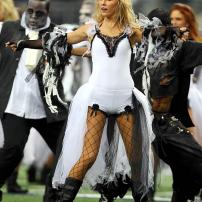The Dallas Cowboys won the game of Texas Hold’em with DeMarco Murray.
They didn’t blink. They stuck to their hard line.
Sure, they lost the NFL’s leading rusher in the process, as Murray chose the greener pastures of Philadelphia, accepting the Eagles’ five-year, $42 million contract.
But the Cowboys stood on principle and won the battle for their financial bottom line. What that will mean on the field next season remains to be seen.
But what it means for the Cowboys more than ever is that this is Stephen Jones’ team.
Jerry Jones still carries the title of owner/general manager. He remains the face of the franchise. But it’s his son, Stephen Jones, the vice president of player personnel, who is making more of the final decisions.
This changing of the guard became increasingly evident last season when it was Stephen who attended every practice instead of the elder Jones, which was a change.
Just think about it. If Jerry Jones were in charge, Dez Bryant and DeMarco Murray would have been locked up with big deals long ago. Heck, Johnny Manziel would have been the team’s top pick a year ago.
But it was Stephen, along with scouting czar Will McClay and coach Jason Garrett, who talked Jerry off the proverbial Manziel ledge during the 2014 NFL Draft.
If truth be told, Stephen’s influence began taking hold a few months earlier when the Cowboys decided to part ways with defensive end DeMarcus Ware and let defensive tackle Jason Hatcher walk in free agency.
The Ware move was tough for Jerry Jones, who loathes letting future Hall of Famers leave. But Stephen was all about making the team fiscally solvent and financially accountable.
The days of Miles Austin and Marion Barber getting paid for one big year of service are long gone. And apparently, so too, is the idea of giving even the deserving players whatever they want, no matter the cap repercussions.
Bryant’s situation — he was given the franchise tag as the team tries to work out a long-term deal — falls under the latter. Murray falls under the former.
The Cowboys didn’t come lightly to the decision to hardball Murray. They did their homework. They studied the analytics. They charted his every touch from the day he came into the league as a third-round pick in 2011 and compared it to other top backs. They took into account the declining production of backs as they age.
And while they wanted Murray to return, they came up with a number they wouldn’t come off of when it came to his worth.
The number would have been “fungible” in the mind of the elder Jones, who as late as last month said he would exceed his budget to keep Murray. Too bad for Murray that Stephen is the new gatekeeper at Valley Ranch.
Jerry Jones likes to tell the story of Stephen throwing him against the wall in 1995 when he decided to give Deion Sanders a then-record $35 million contract, including a $12.9 million signing bonus.
Of course, we all know Jerry dusted himself off and signed Sanders anyway.
Stephen doesn’t have to use force to keep his dad in check anymore. It’s Stephen who is writing the checks.
Courtesy: Clarence E. Hill Jr
Winds of change–The Dallas Cowboys transition of power is shifting
Five months ago, after the Dallas Cowboys had toppled the Seattle Seahawks 30-23 on the road and staked their claim as Super Bowl hopefuls, team owner Jerry Jones was floating through the locker room. Tapping players on the elbow and winking as he walked by, he joked that this was the kind of win that might have prompted him to form a line out of his office for contract extensions.
“And I might have signed them all, too,” Jones said, half-jokingly.
Yet here we are, in the midst of what might be the most remarkable period of financial self-control in Cowboys history. All of the sudden, this is the team that passed on the searing media spotlight of Johnny Manziel and drafted offensive guard Zack Martin, who became an All-Pro as a rookie. It’s the franchise that weighed the off-field concerns of superstar wideout Dez Bryant against his colossal on-field production – and chose to give him a safer, salary-cap averse, one-year franchise tag instead of a monster extension. The extension would have freed room to spend more money this offseason, but the Cowboys chose the conservative play.
And then came Thursday, when Dallas bricked up the vault and said it wouldn’t pay league-leading rusher DeMarco Murray more than he was worth – and stuck to it, letting Murray slip away to the hated Philadelphia Eagles.
All of these moves are alarmingly prudent when placed against this franchise’s history of being a slot machine for star players. As one high-level NFL agent put it, “The two best days in the year are your birthday, and when Jerry Jones takes your call.”
All of which begged the questions Thursday: “Which chair is Jerry Jones tied to, and how dark is the closet where he’s being kept?”
It’s a joke, of course. It’s undeniable that Jones will always be the rock-star front man for the Dallas Cowboys. But this streak of fiscal responsibility has some fingerprints on it, and those who know the Cowboys say those identifying marks belong largely to Jones’ son Stephen. Outside of Dallas and NFL circles, not a lot is known about the man, other than he’s the offspring of arguably the league’s wildest owner, and carries a business card that lists a one-man corporation: “Stephen Jones: Dallas Cowboys Chief Operating Officer/Executive Vice President/Director of Player Personnel.”
That’s a mouthful in any organization but also not entirely uncommon for owners’ sons who are expected to inherit the kingdom and all its glory. Stephen Jones is that guy in Dallas. He’s the one who gets the party bus and the $4 billion franchise that accompanies it.
So here’s what NFL sources are saying right now about Stephen Jones: He’s doing a disciplined job of running a franchise that had become known for shooting from the hip fast and often, consequences be damned. Asked his opinion of what Stephen Jones is doing with the team, one NFL source lavished praise.
“What he’s doing – I don’t know how else to say it, other than it’s really smart,” the source said. “Stephen has restraint. He can be someone who is very cheap and deliberately slow.”
Those aren’t usually glowing reviews in NFL circles. But in this case, that’s exactly what they were. Whereas Jerry Jones was known to spend as much with his heart as his head, Stephen appears to be taking this most pragmatic of approaches. If an option is not good for the Cowboys in the long-term he doesn’t want to entertain it. And if he can’t find a way to work around it, he’ll take more time to figure it out, rather than trying to spend his way through it.
And what happened with Murray ultimately drew the spotlight and placed it squarely on Stephen Jones. It was Stephen who drew the line at $5 million a season for Murray, according to multiple league sources. They said Stephen felt that going north of that number would have necessitated tinkering with the salary cap beyond 2015, particularly with the Cowboys still looking at other free agents, and needing to retain financial flexibility for the draft class and any unforeseen roster problems later in the offseason.
So while others were riding a freight train to the outer limits of their cap, Stephen Jones made the decision that Dallas would sacrifice Murray and work around the problem with cheaper free-agent options or the draft. And in a twist – one league source said this was in contradiction to Jones’ father, whose sentimentality for Murray would have had Dallas paying between $6 million to $7 million a year to retain the running back.
In the end, it was Stephen Jones who won out. Why? It’s because Stephen has grown concerned with the percentage of the team’s salary cap devoted to the offense. Prior to tackle Tyron Smith‘s contract restructure this week, nearly $61 million of Dallas’ $143 million 2015 cap was accounted for by only four offensive players: quarterback Tony Romo ($27.7 million), Smith ($13 million before the restructure), Dez Bryant ($12.8 million) and tight end Jason Witten ($8.5 million).
Stephen Jones did not want to add Murray to that list at the cost of $6 million to $8 million a season, sources said. So he offered a deal averaging around $5 million and stuck with it. Other media outlets have reported the franchise was willing to go as high as $6 million a season but even that wouldn’t have beaten the deal offered by the Eagles, who landed Murray at an average north of $8 million a year.
So Dallas took the loss and began working other options. But expecting something glitzy might lead to disappointment. Despite redoing Smith’s deal, Stephen Jones doesn’t want to start tinkering with other large ones, such as Romo’s – nor does the franchise seem in a hurry to extend Bryant and risk potential embarrassment by any off-field issues later.
Some have suggested that Adrian Peterson could come back into play, and perhaps he might. Peterson would be willing to rework his contract and take a “discount” to $9 million a season with around $25 million guaranteed. But to even get that done, Dallas would have to convince the Minnesota Vikings to trade Peterson.
But the reality is this: $9 million per season and $25 million guaranteed no longer sound like Stephen Jones numbers. And if Jerry Jones is staying out of it, the writing is on the wall (NO ADRIAN PETERSON).
Passing on Peterson would fit in with these new Cowboys. And it would probably continue to look smart, too.
Call it what you want: consensus building, penny-pinching, slow-playing. Maybe Stephen Jones is all of these things. But one thing he isn’t is an ATM for sentimental player withdrawals. That guy is the one tied to the chair and shoved into the closet. And the key to the bank vault is being turned by somebody new.
Courtesy: Charles Robinson
Stephen Jones Era–Going from Texas Hold’em to Texas Fold’em
It’s OK, Dallas Cowboys fans.
Mourn the departure of the NFL’s reigning rushing leader. It stings, especially with DeMarco Murray joining a hated NFC East rival in the Philadelphia Eagles.
But remember this amid the pain and anger: These are the types of tough decisions that must sometimes be made by model NFL franchises.
Yes, the words “model franchise” and “Dallas Cowboys” haven’t gone together without sarcasm since the glory days of Jimmy Johnson in the early 1990s. Parts of the past 20 seasons were marred by poor decision-making and flawed football philosophy by the Jerry Jones-led front office.
The handling of the Murray situation further indicates that those days are gone.
In previous years, Dallas probably would have spent big to keep Murray or at least tried to match the five-year, $42 million contract he signed Thursday with Philadelphia that included $21 million guaranteed. Instead, the Cowboys learned from their 2008 decision to re-sign fellow running back Marion Barber III to a seven-year, $45 million deal that included $16 million in guaranteed money.
No other franchise knows Murray’s strengths, weaknesses and health status like Dallas after four seasons together. This helped the Cowboys formulate a bottom-line price despite their affinity for a workhorse who carried the football a ridiculous 436 times (392 in regular season, 44 in playoffs) on a 12-4 team that reached the second round of the playoffs.
Even after the Eagles surprisingly swooped in, Dallas held steady because of the impact that boosting its offer would have on the franchise’s salary cap and other desired roster moves — not just for 2015, but beyond. The league’s most consistently successful squads stick to their guns and employ that same thought process.
“Obviously, therez is emotion involved in these decisions,” Jones said Thursday night in a team-released statement. “But it is critical that there be must be discipline involved as well. If it were a question of having an open checkbook with no salary-cap constraints, we all know things would have worked out differently.”
Whether Murray will boom or bust for the Eagles is something nobody knows. Murray could thrive in Chip Kelly’s offense or get plagued by injuries again like in his first three NFL seasons.
But at least the Cowboys’ reasoning is solid. The same goes for a litany of other decisions made since last year.
One of the biggest was avoiding the temptation to select quarterback Johnny Manziel in the 2014 draft because of the sizzle and instead choosing guard Zach Martin. Manziel was a rookie bust in Cleveland and remains in a rehabilitation facility for substance-abuse this offseason. Martin became the first Cowboys rookie in 45 years voted to the prestigious Associated Press All-Pro team.
The days of expensive trades (wide receiver Roy Williams) and overpriced free-agent signings to fill holes (cornerback Brandon Carr) are in the past as well. The Cowboys also have shown restraint in contract negotiations with wide receiver Dez Bryant, using the franchise tag to retain his services for 2015 rather than offer the type of long-term deal his camp wants that Dallas could regret later.
Much of this change is credited to Cowboys executive Stephen Jones. While still the franchise’s front man, Jerry Jones has reportedly demurred to his son on a number of personnel decisions. The ascension of assistant personnel director Will McClay has helped rectify previous draft mistakes. There is now a conscious effort to avoid the short-sighted handling of the salary cap — including the regular restructuring of quarterback Tony Romo’s contract for immediate relief — that helped trigger the 2014 offseason release of all-time Cowboys sack leader DeMarcus Ware.
Such improvements don’t guarantee the Cowboys will become a mistake-free franchise. There is no such thing.
Even with what is arguably the NFL’s best offensive line to open holes, Dallas must decide how it will compensate for Murray’s departure.
Darren McFadden, oft-injured during his seven seasons in Oakland, agreed to a two-year contract Friday but the Cowboys may not stop there. The NFL Draft is rife with promising prospects although using a high pick would keep the Cowboys from further bolstering the defense.
The old Cowboys would desperately call Minnesota to inquire about Adrian Peterson and how many draft picks it would take to land him and the $44.3 million in base salaries remaining on his three-year contract. The same possibility can’t be dismissed from the new Cowboys, but such a deal seems unlikely considering the trade compensation and Peterson’s expected salary demands.
Jerry Jones alluded to this type of controlled approach when justifying the decision not to bid higher for Murray.
“At the end of the day,” he wrote, “this is about finding the best way to collectively fit all of the individual pieces together in terms of talent and dollars under the salary-cap structure that gives you the best chance to have a championship team.”
Even without Murray, the Cowboys finally have a viewpoint that gives them a legitimate chance of doing just that.
Courtesy: Alex Marvez



























 Bing Rewards
Bing Rewards Blu eCigs
Blu eCigs NFL GAME REWIND
NFL GAME REWIND Instant access to Real Men Of Genius
Instant access to Real Men Of Genius Instant access to the TRUEblues group
Instant access to the TRUEblues group
my question is: are we going to get a step in, pass rusher this yr, like a Greg Hardy, we can porobaly get him for cheap anyway, we dealt with worse people and made it ok!!
LikeLiked by 1 person
Thanks for the excellent question Donnie. It inspired a write-up on The Boys Are Back website. Thought provoking questions and comments are always welcome here. Please refer the following post: https://theboysareback.wordpress.com/2015/03/15/true-blue-fan-question-should-the-dallas-cowboys-sign-free-agent-pass-rusher-greg-hardy/
LikeLike